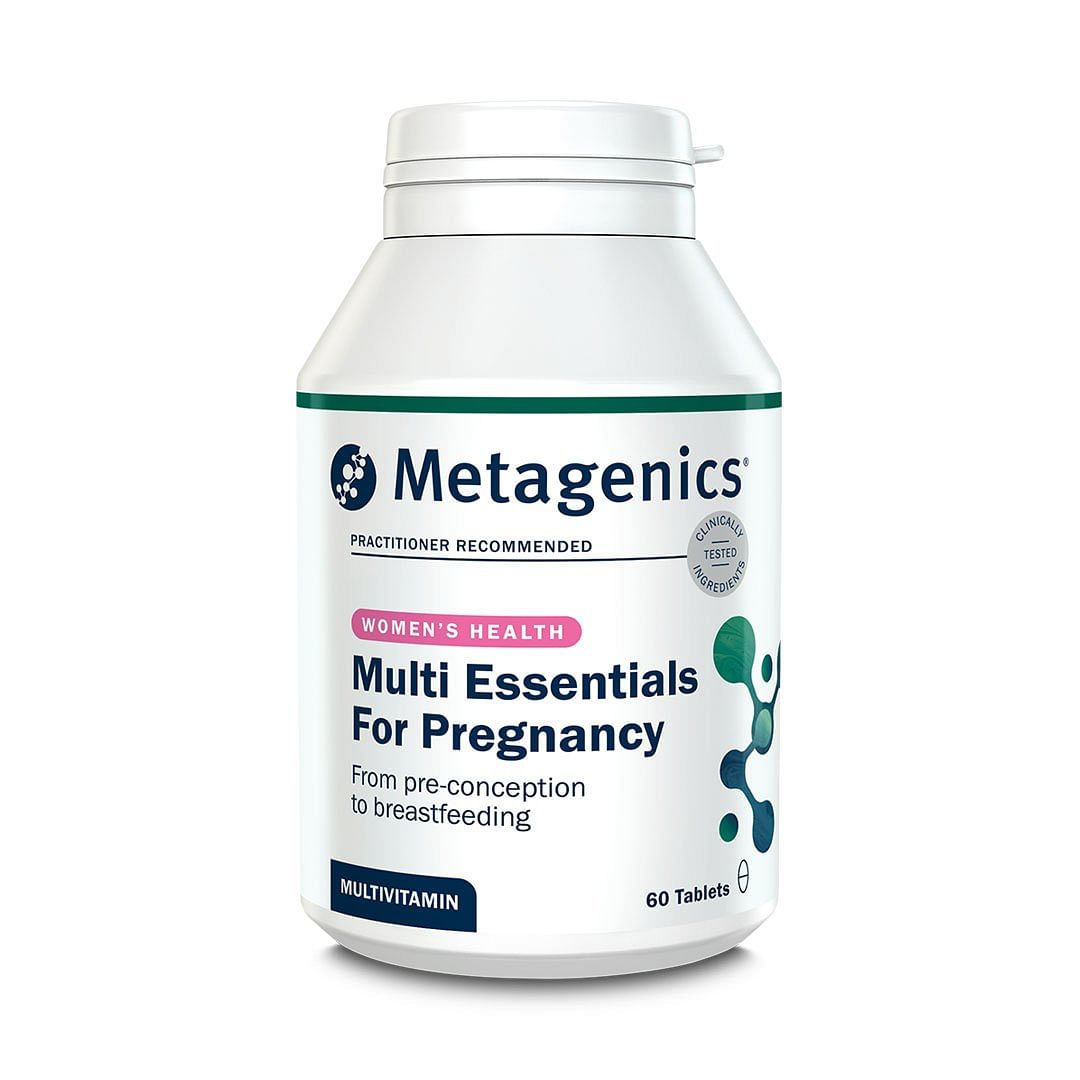Types of Pregnancy Test
When you're trying to conceive, the anticipation of finding out whether you're pregnant can be overwhelming. But choosing the right pregnancy test and taking it at the right time can make all the difference in getting an accurate result.
Blood vs Urine Pregnancy Tests
There are two main types of pregnancy tests, both of which are designed to detect the presence of human chorionic gonadotropin (hCG) which is a hormone produced during pregnancy.
Urine Tests
- Most commonly used at home
- Available as midstream sticks or dip strips
- Typically accurate from the first day of a missed period
- Results in minutes
- Affordable and convenient
Blood Tests
- Performed in a clinical setting
- Qualitative: Confirms if hCG is present
- Quantitative: Measures exact hCG levels
- Can detect pregnancy earlier than urine tests (as soon as 6–8 days after ovulation)
- Useful for monitoring early pregnancy or high-risk cases
When Should You Test?
Determining the best pregnancy test depends on several factors:
- Timing: Testing too early may lead to false negatives. Waiting for at least a week after a missed period improves accuracy.
- hCG Levels: These vary from person to person and rise rapidly in early pregnancy. Blood tests can detect lower levels sooner.
-
Location & Access: Home urine tests are more accessible and private, while blood tests require a visit to a clinic.
If you’re trying to conceive, the suspense of waiting for the right time to test can leave you feeling impatient. However, testing at the right time aids detection and helps give you the most accurate result.
Whether you're actively trying to get pregnant or just beginning your journey, prenatal vitamins play a vital role in supporting early foetal development. Nutrients like folic acid, iron, calcium, and vitamin D are essential for reducing the risk of birth defects and preparing your body for pregnancy.
How Pregnancy Tests Work
Pregnancy tests are designed to detect one key indicator of pregnancy which is the hormone, human chorionic gonadotropin (hCG). This hormone is produced shortly after a fertilized egg implants in the uterus, and its presence is what activates both urine and blood pregnancy tests.
The Science Behind the Test
- Urine Tests: These are the most common and accessible tests, often used at home. They contain antibodies that react to hCG in the urine. If hCG is present, the test will show a positive result which is usually as a line, symbol, or digital message.
-
Blood Tests: Conducted in clinical settings, these are more sensitive and can detect lower levels of hCG earlier than urine tests.
- Qualitative blood tests confirm whether hCG is present.
- Quantitative blood tests measure the exact amount of hCG, which can help determine how far along the pregnancy is or monitor its progression.
The accuracy of these tests depends on when you take them. Testing too early may result in a false negative because hCG levels may not yet be high enough to detect. That’s why timing is crucial and ideally tests should be taken at least a week after a missed period for the most reliable results.
What Is hCG?
Human Chorionic Gonadotropin (hCG) is often called the pregnancy hormone. hCG is produced by cells that will eventually form the placenta. It begins to rise shortly after implantation, typically around 6–10 days after conception. hCG supports early pregnancy by stimulating the production of progesterone and estrogen, maintaining the uterine lining and preventing menstruation. In early pregnancy, hCG levels double approximately every 48 to 72 hours. They peak around weeks 8–11 and then gradually decline.
What are normal hCG levels by week in pregnancy? These levels vary widely between individuals so it's not just the number that matters, but how it changes over time. A healthy pregnancy typically shows a steady rise in hCG levels.
| Weeks since last menstrual period | Typical hCG Range (mIU/mL) |
| 3 weeks | 5–50 |
| 4 weeks | 5–426 |
| 5 weeks | 18–7,340 |
| 6 weeks | 1,080–56,500 |
| 7-8 weeks | 7,650–229,000 |
When is the Best Time to Take a Pregnancy Test?
Generally, the best time to take a pregnancy test is on the day of your missed period or later. At this point, hCG levels, the hormone detected by pregnancy tests are typically high enough to yield accurate results. However, some early detection tests can identify pregnancy up to 6 days before your missed period, depending on their sensitivity.
For early accuracy, blood tests are considered the most reliable. They can detect very low levels of hCG in the bloodstream before it’s concentrated enough in urine. Still, many early-response urine tests offer convenient at-home options with impressive sensitivity.
If you're trying to conceive, the suspense of waiting for the right time to test can leave you feeling impatient. However, testing at the right time aids detection and helps give you the most accurate result.
Pregnancy Test Accuracy by Type and Timing
| Test Type | Timing of Test | Sensitivity(hCG mIU/mL) | Accuracy Rate (%) | Notes |
| Blood Test (Quantitative) | 6–8 days after ovulation | 1–2 | ~99% | Most sensitive; detects exact hCG levels-requires clinic visit |
| Blood Test (Qualitative) | 8–10 days after ovulation | ~5 | ~99% | Confirms presence of hCG; early detection possible |
| Early Detection Urine Test | Up to 6 days before missed period | 6.5–10 | 60–77% | Brands like First Response™ offer early results |
| Traditional Urine Test | Traditional Urine Test | 25 | 99%+ | Most reliable when used after missed period |
| Digital Urine Test | Day of missed period or later | ~25 | 99%+ | Easy-to-read results; may be less sensitive than strip tests |
Signs you Might be Pregnant
If you're wondering whether it's time to take a pregnancy test, your body may already be giving you subtle clues. While every pregnancy is different, some early signs are common and can appear even before a missed period. If you notice any of the following symptoms, it might be time to test to either to rule out pregnancy or begin taking steps to support your journey.
Common Early Pregnancy Symptoms;
- Tender or swollen breasts – Hormonal changes can cause soreness and visible veins
- Fatigue – Feeling unusually tired due to rising progesterone levels
- Nausea or morning sickness – Can begin as early as two weeks after conception
- Frequent urination – Increased blood flow to the kidneys starts early
- Food cravings or aversions – Sudden changes in taste or smell sensitivity
- Mood swings – Hormonal fluctuations may cause emotional ups and downs
- Spotting or light bleeding – Known as implantation bleeding, typically light and brief
- Cramping or pelvic discomfort – May feel similar to period pains
-
Bloating and constipation – Slowed digestion due to hormonal shifts
If you're experiencing any combination of these symptoms, consider taking a pregnancy test. And if you're trying to conceive, now is a great time to start taking prenatal vitamins to support early foetal development and prepare your body for pregnancy.
Negative Pregnancy Test Results
Seeing a negative result on a pregnancy test can stir up a mix of emotions and especially if you're actively trying to conceive. But before jumping to conclusions, it's important to understand that timing and test type play a major role in accuracy. A negative result doesn’t always mean you’re not pregnant. It could simply mean you tested too early or used a test that wasn’t sensitive enough to detect low levels of hCG (human chorionic gonadotropin).
- Early Testing: If you tested before your missed period, hCG levels may not be high enough yet.
- Urine Dilution: Drinking too much water before testing can dilute hCG levels.
- Test Sensitivity: Some tests detect hCG at 10 mIU/mL, while others require 25 mIU/mL or more.
- Retesting Advice: Wait 48–72 hours and test again with first-morning urine for best accuracy.
If repeated tests confirm you're not pregnant, take heart as conception takes time, and you're not alone.
How Long Does It Typically Take to Conceive?
Most healthy couples conceive within 12 months of regular, unprotected sex. For women under 35, it's normal for conception to take up to a year. For women over 35, consider seeking medical advice after 6 months of trying. Whether you're just starting your journey or have been trying for a while, there are proactive ways to support your reproductive health:
For Women
- Track ovulation to time intercourse during fertile windows.
- Maintain a balanced diet rich in antioxidants and essential nutrients.
- Start pre-pregnancy supplements to prepare your body for conception.
For Men - Male fertility plays an equal role in conception. Supplements can support with:
- Sperm count and motility
- DNA integrity and morphology
- Hormonal balance and antioxidant protection
Key nutrients include:
- Zinc
- Vitamin C & E
- Folate (B9)
- Coenzyme Q10
-
Selenium
Positive Pregnancy Test Results
Seeing a positive pregnancy test can be one of the most emotional and life-changing moments in your journey. Whether it’s a long-awaited result or a complete surprise, it’s normal to feel a mix of excitement, joy, and even uncertainty. So what should you do next?
Step 1: Confirm Your Pregnancy
Even if your home test is positive, it’s important to confirm the result with a healthcare provider. They may perform:
- A blood test to measure hCG levels
- An ultrasound to confirm implantation and estimate your due date
- A prenatal screening to assess your overall health
Booking your first prenatal appointment is a key milestone. Most providers schedule this around 8 weeks gestation, but earlier visits may be recommended if you have existing health conditions or symptoms.
Step 2: Start Prenatal Vitamins
Your baby’s development begins immediately, and so does your need for essential nutrients. Prenatal vitamins help fill nutritional gaps and support both maternal health and fetal growth.
Key nutrients include:
- Folic acid – reduces risk of neural tube defects
- Iron – supports placenta and prevents anaemia
- Vitamin D & Calcium – essential for bone and teeth development
- Omega-3 fatty acids – promote brain and eye development
Step 3: Support Your Body and Mind
Pregnancy is a whole-body experience. Now is the time to:
- Eat a balanced diet rich in whole foods and lean proteins
- Stay hydrated and get gentle exercise (as advised by your doctor)
- Avoid harmful substances like alcohol, tobacco, and certain medications
- Get emotional support from loved ones or prenatal communities
Step 4: Begin Planning for Baby
While you don’t need to have everything figured out right away, it’s helpful to start thinking about:
- Your birth plan and preferred care provider (midwife)
- Financial planning and maternity leave options
- Lifestyle adjustments to support a healthy pregnancy
Our expert team are writing a helpful pregnancy guide offering more detailed guidance on supporting your body during pregnancy, with full breakdowns on the supplements both mother and baby need and how these work.
|
Metagenics Multi Essentials For Pregnancy Multivitamin - 60 Tablets 25 essential vitamins and minerals to support pre-conception, pregnancy, and breastfeeding. Developed with safety in mind, this high-strength formula includes only ingredients considered safe during pregnancy—like beta-carotene as a gentle form of vitamin A. Metagenics’ advanced nutrient forms promote fertility, immune health, energy, and foetal development. |
Why Choose Supplement Hub?
Supplement Hub is a trusted provider of high-quality nutritional supplements, offering a comprehensive range of vitamins, minerals and other essential nutrients to support a healthy lifestyle. Whether you're preparing for pregnancy, supporting a growing baby, or simply looking to improve your overall wellness, we offer targeted solutions across a wide range of categories and Supplement Hub ensures that you get practitioner-approved products.
We always recommend consulting with a healthcare professional before selecting the right supplements for you.






